Excerpt: The Seat of the Soul
The power to control the environment, and those within it, is power over what can be felt, smelled, tasted, heard, or seen. This type of power is external power. External power can be acquired or lost, as in the stock market or an election. It can be bought or stolen, transferred or inherited. It is thought of as something that can be gotten from someone else, or somewhere else. One person's gain of external power is perceived as another person's loss. The result of seeing power as external is violence and destruction. All of our institutions—social, economic, and political—reflect our understanding of power as external.
Families, like cultures, are patriarchal or matriarchal. One person "wears the pants." Children learn this early, and it shapes their lives.
Police departments, like the military, are produced by the perception of power as external. Badge, boots, rank, radio, uniform, weapons, and armor are symbols of fear. Those who wear them are fearful. They fear to engage the world without defenses. Those who encounter these symbols are fearful. They fear the power that these symbols represent, or they fear those whom they expect this power to contain, or they fear both. The police and the military, like patriarchal and matriarchal families and cultures, are not origins of the perception of power as external. They are reflections of the way that we, as a species and as individuals, have come to view power.
The perception of power as external has shaped our economics. The ability to control economies, within communities and within nations, and the ability to control the transnational economy of the world, is concentrated in the hands of a few people. To protect workers from these people, we have created unions. To protect consumers, we have created bureaucracies in government. To protect the poor, we have created welfare systems. This is a perfect reflection of how we have come to perceive power—as the possession of a few while the majority serve it as victims.
Money is a symbol of external power. Those who have the most money have the most ability to control their environment and those within it, while those who have the least money have the least ability to control their environment and those within it. Money is acquired, lost, stolen, inherited, and fought for. Education, social status, fame, and things that are owned, if we derive a sense of increased security from them, are symbols of external power. Anything we fear to lose—a home, a car, an attractive body, an agile mind, a deep belief—is a symbol of external power. What we fear is an increase in our vulnerability. This results from seeing power as external.











